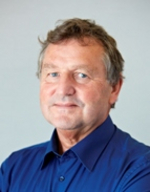Plenary Speakers

H.E. Minister Amadou Ba
Minister of Economy and Finance, Dakar, Senegal
Amadou BA, actuel ministre de l’Economie et des Finances est né il ya 52 ans à Dakar. Monsieur Ba obtient son baccalauréat série G2 Technique en 1980, il suit des études économiques à l’Université Cheikh Anta DIOP de Dakar d’où il sort, quatre ans plus tard, avec un diplôme de Maîtrise ès Sciences économiques, Option Gestion des Entreprises. A 27 ans, il est breveté de l’Ecole Nationale d’Administration et de Magistrature (ENAM). Amadou BA est également titulaire d’un Diplôme supérieur en Comptabilité et a eu à enseigner cette matière, à plusieurs promotions d’élèves d’inspecteurs de la section « Impôts et Domaines » de l’Ecole Nationale d’Administration et cela depuis 1992. Entre 1995-2000, il est chargé de d’enseignements au Centre Ouest Africain de Formation et d’Etudes Bancaires (COFEB) de la Banque centrale des Etats de l’Afrique de l’Ouest (BCEAO). Sur le plan professionnel, l’actuel ministre de l’Economie et des Finances débute sa carrière à Diourbel avant d’être ensuite affecté au Centre des Services fiscaux (CSF) de Dakar Plateau. Entre 1992 et 1994 il occupe le poste de Commissaire Contrôleur des Assurances à la Direction des Assurances avant de revenir à la Direction Générale des Impôts et Domaines en tant qu’Inspecteur Vérificateur à la Direction des vérifications et Enquêtes jusqu’à 2002. A partir de 2002, Monsieur Amadou Bâ va diriger successivement le Centre des Grandes Entreprises et la Direction des Impôts avant d’être promu Directeur général des Impôts et Domaines en novembre 2006, poste qu’il occupe jusqu’au lundi 02 septembre 2013, date de sa nomination au poste de ministre de l’Economie et des Finances du Sénégal. M. Amadou BA est marié et père de trois enfants.

John S. Bircham
Bircham-Global Ltd, New Zealand
Dr. John Bircham is the principal of Bircham-Global, an Australasian consultancy that specializes in the resolving of wicked problems and the researching, formulating and developing of strategies and products for government and businesses as they confront the ongoing demands of society for greater performance - “more for less.” He is a former research scientist and modeller. Bircham holistically integrates into his consultancy, teaching, writing and speaking activities, his life-long study of the effects of pressure on complex adaptive systems, his interest in ecology, psychology and neurophysiology, and his knowledge and hands-on experience of leadership, culture, strategy, organizational behaviour, risk and resilience in the workplace, and the management and governance suites.

Joern Birkmann
Section Head & Academic Officer, United Nations University (UNU-EHS), Germany
Joern holds a PhD in Spatial Planning from the Dortmund University and a post-doctoral degree in Geography (Habilitation) from the University of Bonn, Department of Geography. Furthermore, he holds a licence as urban planner. He has broad expertise in the field of vulnerability, sustainable development and environmental assessment. He is specialized in the area of the development of assessment methodologies and indicators to estimate and evaluate different socio-economic trends and environmental degradation at sub-national, local and household scale. He is currently IPCC Lead-Author in the IPCC Special Report “Managing the Risk of Extreme Events and Disasters to Advance Climate Change Adaptation”. He is also Lead-Author in the Fifth Assessment Report of the IPCC in the chapter "Emergent Risks and Key-Vulnerabilities". His work experience also encompasses research activities and lectures, for example in London and Mexico. Besides research and training activities at UNU-EHS, Joern also teaches at the Institute for Geography at the University of Bonn. He is currently involved in vulnerability assessment in coastal and flood-prone communities in Indonesia and Vietnam and also coordinates the development and testing of indicators to measure vulnerability to floods, heatwaves and droughts, as well as sea level rise in Germany, Egypt and Indonesia.

Stefan Brem
Head of Risk Analysis and Research Coordination, Federal Department of Defense,Civil Protection and Sport, Federal Office for Civil Protection, Policy Division, Berne, Switzerland
Stefan Brem joined the Federal Office for Civil Protection within the Swiss Federal Department of Defence, Civil Protection and Sport in March 2007, where he leads a section on Risk Analysis and Research Coordination. Prior to his current position he served four years at the Federal Department of Foreign Affairs’ Centre for International Security Policy, where he was responsible for international aspects of Critical Infrastructure Protection (CIP), Security Sector Reform, Border Security and Private Military Companies. He has organized several international conferences on CIP and Border Security and has published on arms control, intelligence studies, CIP and other security issues. He completed his dissertation in Political Science with the University of Zurich in 2003.

Peter Burgherr
Group Leader Technology Assessment, Laboratory for Energy Systems Analysis,Paul Scherrer Institut PSI, Villigen, Switzerland
Peter Burgherr leads the inter-disciplinary Technology Assessment group at the Paul Scherrer Institute (PSI) which carries out comprehensive assessments of energy systems to support the complex decision-making processes towards a sustainable energy future. His primary research interest is the comparative analysis of accident risks in the energy sector, and its relevance in the broader context of energy security and critical infrastructure protection. He is also the primary responsible for PSI’s database ENSAD (Energy-Related Severe Accident Database), which is the world's largest database on severe accidents in the energy sector. Furthermore, he is strongly involved in the sustainability assessment of current and future energy technologies as well as their evaluation within Multi-Criteria Decision Analysis (MCDA). He is regularly presenting his work at international conferences and meetings, publishing in peer-reviewed scientific journals, contributing to books, and various other publications. He is also engaged in the supervision of students at different levels, and lectured at ETH Zurich, University Geneva and KINGS (South Korea). He holds a doctoral degree in environmental sciences from ETH Zurich.

Tarzisius Caviezel
Tarzisius Caviezel, Mayor of the City of Davos, Davos, Switzerland
In 1982, Tarzisius Caviezel founded the company Elektro Caviezel AG in Davos which today is part of the Burkhalter Group. From 1997 to 2007 he was the CEO of the Burkhalter Group and stayed in the Group’s management board until 2012. From 2007 to 2011 Tarzisius Caviezel represented the Canton of Grisons in the Swiss National Council as National Councillor. Besides this, he worked as an independent businessman. He chaired the management board of the Hockey Club Davos for eight years and is in the board of directors of the Swiss railway company RhB since 2010. Since January 2013, he is the governing mayor of Davos.

Qunli Han
Director, Division of Ecological and Earth Sciences (SC/EES), Secretary, Man and the Biosphere (MAB) Programme,UNESCO Headquartes, Paris, France
Joined UNESCO in 1990, Mr Han worked on application of geographic information in biosphere reserves in Kenya, Indonesia and China, contributed to the development of East Asian Biosphere Reserve Network and the initiation of web-based MABnet. Moved to Jakarta in 1998, he served as Asia-Pacific regional officer for environmental sciences, including MAB and natural World Heritage. Mr Han moved to UNESCO Tehran Office as Director and UNESCO Representative in July 2007. In July 2011, he was appointed as the Director of Science Executive Office and in July 2013 to the current post. During his assignments in Asia-Pacific region, Mr Han participated in a number of UN response to natural disasters, including UNESCO work toward 2004 Indian Ocean earthquake and tsunami, Yogyakarta earthquake 2005, and UN country team work in Iran to support recovery from 2003 Bam earthquake. Before UNESCO, Mr Han was a researcher in the Integrated Survey of Natural Resources of the Chinese Academy of Sciences.

Barry B. Hughes
Director, Frederick S. Pardee Center for International Futures, Denver, USA
Dr. Barry B. Hughes is John Evans Professor at the Josef Korbel School of International Studies, University of Denver. Dr. Hughes earned a B.S. in Mathematics from Stanford and his Ph.D. in Political Science from the University of Minnesota. He has taught at Case Western Reserve University, University of Denver, and internationally. His principal interests are in (1) global change, (2) computer simulation models for economic, energy, food, population, environmental, and socio-political forecasting, and (3) policy analysis. The fundamental concerns that synthesize these interests are (1) developing effective response to long-term global change and (2) improving the long-term human condition. He has developed International Futures (IFs), the widely-used computer simulation for study of long-term national, regional, and global issues (see http://www.ifs.du.edu/ifs/frm_MainMenu.aspx). Dr. Hughes has supported the U.S. National Intelligence Council's reports to the President on Mapping the Global Futures 2020, Global Trends 2025, and Global Trends 2030. He provided long-term global forecasting for the United Nations Environment Programme's Global Environment Outlook 4. He provided background research papers and forecasting content used in the United Nations Human Development Reports (2011 and 2013). He was a principal researcher in European Commission projects on the New Economy and on Information and Communications Technology. He has contributed research to projects of RAND, the Central Intelligence Agency, United States Institute of Peace, and many other organizations. Dr. Hughes has written or co-authored The Domestic Context of American Foreign Policy (Freeman 1978), World Modeling (Lexington 1980), World Futures (Johns Hopkins 1985), Disarmament and Development (Prentice-Hall 1990), Continuity and Change in World Politics (Prentice-Hall 1991, 1994, 1997, 2000), International Futures (Westview 1993, 1996, 1999), Exploring and Shaping International Futures (Paradigm 2006), Reducing Global Poverty (Paradigm and Oxford University Press, 2009), Advancing Global Education (Paradigm and Oxford University Press, 2010), Improving Global Health (Paradigm and Oxford University Press, 2011), Building Global Infrastructure (Paradigm and Oxford University Press, 2013), Strengthening Governance Globally (Paradigm and Oxford University Press, 2014) as well as articles in publications including World Politics, International Organization, International Studies Quarterly, Futures, L'Express, Energy Policy, Policy Studies Review, International Political Science Review, Simulation and Gaming, Economic Development and Cultural Change, Bulletin of the World Health Organization, Sustainability, Climatic Change, and Technological Forecasting and Social Change.








Kazuko Ishigaki
Risk Knowledge Economist, United Nations Office for Disaster Risk Reduction,Geneva, Switzerland
Ms. Kazuko Ishigaki is the risk knowledge economist of the United Nations International Strategy for Disaster Risk Reduction (UNISDR). She leads the technical development of new monitoring system for post-2015 Framework for Disaster Risk Reduction, and the economic analysis to facilitate risk-proof public investment across countries. She has also drafted “Progress and Challenges in Disaster Risk Management” based on her comprehensive and comparative analysis of HFA country reports(forthcoming). Prior to her current position, she served 12 years at Japanese Government (Ministry of Land, Infrastructure, Transport and Tourism and Cabinet Office for Disaster Risk Management) and engaged in disaster risk management planning, national territorial/spatial planning, and a wide array of regional development policies. She also served three years as economist/Policy analyst at the OECD and drafted several publications including “Regional Development Policies in OECD Countries”.
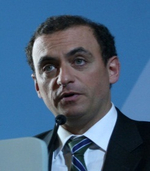
Stéphane Jacobzone
Counsellor, Public Governance and Territorial Development Directorate, OECD, Paris, France
Mr. Jacobzone takes a leading role in coordinating OECD activities under the High Level Risk Forum (HLRF) as part of the OECD public governance policy cluster. The HLRF led the development of the ground-breaking OECD Recommendation on the Governance of Critical Risks, which was adopted by the OECD Ministerial Council Meeting in May 2014. This work is underpinned by a set of thematic activities as well as peer reviews engaging a wide range of OECD countries. The OECD also contributed to a G20/OECD framework on Disaster Risk Assessment and Financing. These activities are closely coordinated with the European Commission and the UNISDR, including in the preparation of the World Conference on Disaster Risk Reduction.
Mr. Jacobzone also co-ordinates the OECD Public Governance Committee, including thematic work on strategic agility and trust in government. Mr. Jacobzone was in charge of coordinating the meeting of the Public Governance Committee at Ministerial level held in Venice in 2010. He previously worked extensively on regulatory issues, the governance of regulatory oversight, multi-level regulatory governance and the institutional design for economic regulators. He conducted multidisciplinary country reviews of regulatory reform in a number of countries, including Australia, Brazil, France, Italy, Korea, Mexico, Norway Switzerland, Sweden and launched a programme of cooperation with Mexico for regulatory reform to enhance competitiveness. He also organized a significant conference at the OECD in 2010 on Regulatory Policy at the Crossroads.
Mr. Jacobzone worked on health and social affairs at the OECD previously. He is a former alumni of the Ecole Polytechnique and ENSAE (National School for Statistics and Economics), France, and began his carrier at the French Treasury specializing in public sector economics and public finance, and as a research fellow at CREST-INSEE. He taught at the French Institut d'Etudes Politiques, Ecole Nationale d'Administration and ENSAE and participated in the US National Bureau of Economic Research (NBER) activities on health and ageing. He is the author of many books and peer reviewed articles in economics and social sciences.

Rashid Khalikov
Director, United Nations Office for the Coordination of Humanitarian Affairs (OCHA), Geneva, Switzerland
Mr. Khalikov is a graduate of the Moscow State Institute of International Relations with a Master’s Degree in International Law and International Relations. In 1976, he joined the Russian Foreign Service and served in New Delhi, Moscow and New York dealing with humanitarian, political, economic and environmental issues. Since 1993, Mr. Khalikov has worked with the United Nations Secretariat as a Senior Humanitarian Affairs Officer, Chief of the Office of the Under-Secretary-General for Humanitarian Affairs and IASC/ECHA Secretariat and as the Deputy Director of OCHA-Geneva.
In 2005, he worked as the Head of Regional Office for Asia and Pacific in Bangkok and as the Area Humanitarian Coordinator in Muzzarabad and Islamabad, in the aftermath of the South Asia Earthquake. From September 2006 to April 2010, Mr. Khalikov acted as the Director of OCHA-New York, where he oversaw OCHA’s work on policy development, information management, external relations (which included interaction with Member States), the Central Emergency Response Fund and other issues related to humanitarian financing. In March 2010, the Secretary-General appointed Mr. Khalikov as the Director of OCHA-Geneva. In Geneva, Mr. Khalikov is responsible for the oversight of emergency response tools, strategic response planning and monitoring, humanitarian resourcing, engagement with partners to strengthen multilateral humanitarian action and coordination and OCHA’s resource mobilization efforts. He works in close partnership with European countries and organisations on specific issues pertaining to humanitarian affairs. Mr. Khalikov is also often deployed on humanitarian missions to provide senior leadership at the request of the USG including, Pakistan, Yemen, DPR Korea, Kyrgyzstan, Syria, Philippines and Mauritania. In March and April of 2011, he was designated as the Humanitarian Coordinator for Libya, by the USG Amos. Mr. Khalikov has visited more than 40 countries where OCHA maintained a field/regional presence.

Donato Kiniger-Passigli
Head of the Fragile States and Disaster Response Group, International Labour Office (ILO), Geneva, Switzerland
Donato Kiniger-Passigli is a specialist in crisis resolution, strategic communication, development cooperation and labour affairs. He is also an expert in effective negotiations in political contexts.
Throughout his 27 years in the UN system (the last 11 in ILO), Donato Kiniger-Passigli undertook many assignments in conflict and disaster affected countries to provide policy advice and management solutions. He is a member of the UNDAC (UN disaster assessment and coordination) team, and authored several publications on emergency management, risk assessment and coordination.
Currently, he is the Head of the Fragile States and Disaster Response Group at the International Labour Office (ILO). He promotes and organizes ILO crisis response programmes and initiatives in the wake of major humanitarian crises, addressing unemployment and decent work deficits. He is an expert in conflict analysis, risk management, disaster needs assessment and business continuity and delivers trainings on the above subjects. He serves as ILO representative in the Conflict Affected Environments Group of the Donor Committed for Enterprise Development. Also, he represents his agency in the UN Transitions Group, the Interagency Disarmament, Demobilization and Reintegration Group and the International Strategy for Disaster Reduction. He is a member of the advisory board of the Geneva Peacebuilding Platform.
In the past years, Kiniger-Passigli has been on the forefront of ILO’s work for the Tsunami response, headed missions in conflict-affected countries such as Libya, Sudan, Sierra Leone, Nepal and Sri Lanka. He took part in the development of the interagency standards for disarmament, demobilization and reintegration, headed a research team which produced guidelines for employment in crisis, devised an interagency partnership for sustainable livelihoods and was part of the team which developed the UN post-conflict policy for employment creation, income generation and reintegration. He also represented ILO at the UN senior steering management committee for food security and coordinated the ILO program on influenza action.
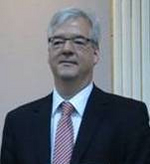
Rüdiger Klein
Executive Director IRDR Programme - RADI / Chinese Academy of Sciences - Beijing - China
Dr Rudiger Klein is Executive Director of the global programme “Integrated Research on Disaster Risk” (IRDR), based at the Chinese Academy of Sciences, Beijing, and co-sponsored by ICSU, ISSC and UNISDR (since July 2014). Prior to joining IRDR, he served inter alia at the Royal Netherlands Academy of Arts and Sciences as Director of the European Federation of 50+ National Academies, and managed a strategy portfolio “research and foresight” at European Science Foundation, the umbrella organisation of 80+ national funding agencies. A German national, he holds a PhD from the University of London and has been researching and lecturing widely across Europe and the Middle East, in the US, Asia and Africa.

Daniel Kull
Humanitarian-Development Attaché, Senior Disaster Risk Management Specialist, World Bank Group, Geneva, Switzerland
Daniel Kull is the focal point for the World Bank Group's (WBG) global policy engagements for strengthening humanitarian-development coordination. He further serves as a senior specialist for weather, climate and hydrological services in the Global Facility for Disaster Reduction and Recovery's (GFDRR) Hydromet team, managing the WBG's relationship with the World Meteorological Organization (WMO) and Global Framework for Climate Services (GFCS). Before joining the WBG, Mr. Kull was the global coordinator for disaster risk reduction (DRR) at the International Federation of Red Cross and Red Crescent Societies, a research scholar with the International Institute for Applied Systems Analysis (IIASA), Senior Disaster Risk Reduction Advisor for the Swiss Agency for Development and Cooperation (SDC) in Tajikistan and Technical Advisor for UNISDR Africa in Kenya. He also served as a hazard specialist for the Swiss Reinsurance Company, having started as a hydraulic engineer for both the Swiss Federal Institute of Technology (ETH) and the Hydrologic Engineering Center (HEC) of the US Army Corps of Engineers. Mr. Kull has a M.Sc. in Water Resource Engineering (University of California, Davis) and a B.Sc. in Civil Engineering (Union College, NY).
Thomas R. Loster
Chairman Munich Re Foundation, Munich, Germany
Thomas R. Loster, a geographer, was a member of the Geoscience Research Group at Munich Reinsurance Company, Munich, the world’s leading reinsurance company, for 16 years. He was in charge of research relating to weather perils, climate change and climate policy. His responsibilities also included the statistical analyses of worldwide natural catastrophes and trend analyses. Mr. Loster was appointed chairman of the Munich Re Foundation in July 2004. The Foundation addresses major global challenges, environmental and climate change, water as a resource and risk factor, population growth and disaster prevention and is committed to helping people exposed to risk situations. True to its motto “From Knowledge To Action,” the Foundation aims to prepare people to deal with risks and to minimise them. The GRF and UNISDR Munich Re Foundation award a huge prize, the RISK Award, for projects improving risk prevention.

Virginia Murray
Vice-Chair of the UNISDR Scientific and Technical Advisory Group, Public Health Consultant in Global Disaster Risk Reduction, Public Health England, London, UK
Professor Virginia Murray was appointed as Public Health Consultant in Global Disaster Risk Reduction for Public Health England in April 2014. This appointment is to progress her work as vice-chair of the UN International Strategy for Disaster Reduction (ISDR) Scientific and Technical Group. She is one of the members of the UNISDR Advisory Group for the Post-2015 Framework for Disaster Risk Reduction. Prior to this, she was appointed as Head of Extreme Events and Health Protection, Public Health England in January 2011. With the Extreme Events team, she helped to develop evidence base information and advice on flooding, heat, cold, volcanic ash, and other extreme weather and natural hazards events. She was appointed as Visiting Professor in Health Protection, MRC-HPA Centre for Environment and Health, Imperial College and King’s College, London (2004), Honorary Professor at University College London (2013) and she has published widely.

Fuat Oktay
PhD, President, Disaster and Emergency Management Presidency (AFAD), Ankara, Turkey
Dr. Fuat Oktay was born in 1964 in Yozgat-Çekerek. He completed his bachelor's degree in business management in Turkey, and received his MBA and PhD in the United States of America. In addition to his MBA degree, he completed a master's programme on Manufacturing Engineering, and a PhD programme on Industrial Engineering.
He became an expert on aviation and automotive industries. Throughout his stay at the US, he worked in the automotive industry, with companies such as Ford, General Motors and Chrysler. In these companies, he worked on product development and lean production projects. He lectured in universities in the US and in Turkey. He provided consultancy services to many public and private sector companies. Moreover, he provided consultancy services to small and medium sized enterprises, including KOSGEB. In some of these companies, he served in the capacity of Director General, Deputy Chairman and Board Member.
During the economic crisis hitting Turkey in early 2000s, he specialized in enterprise-based crisis management, and worked as Vice-Dean and Head of the Business Management Department at Beykent University.
Also working in the field of Aviation and Maintenance & Repair, Dr. Fuat OKTAY served as Deputy Director General responsible for Strategic Planning and Business Development, Sales and Marketing, Production Planning and Information Technologies at Turkish Technic. In the last three years, he has brought to life 5 different joint venture projects at Turkish Technic in the fields of maintenance & repair, design and manufacturing.
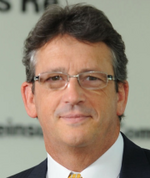
Martyn Parker
Chairman Global Partnerships and member of the Group Management Board, Swiss Re, Zurich, Switzerland
Martyn Parker was appointed as Chairman Global Partnerships in 2012 and is a member of the Group Management Board. In this role, he leads Swiss Re’s business activities with governments and development and non-governmental organisations world-wide. Innovative insurance solutions, public private partnerships and microinsurance are vital to help society create effective responses to major challenges, including natural catastrophes, climate change and food security as well as infrastructure, healthcare and longevity.
Before joining Global Partnerships, Martyn Parker was the CEO Reinsurance Asia, Regional President Asia and a member of Swiss Re's Executive Committee. He became Chief Executive Officer of Swiss Re's Asia Division on 1 June 2006. From his Hong Kong base, he oversaw Swiss Re's rapidly expanding Asia-Pacific business. In April 2001, he was named CEO of Swiss Re Life & Health UK. In 1996, following Swiss Re's acquisition of Mercantile and General Re (M&G Re), he became a Member of the Swiss Re Life & Health Executive Board, responsible for Africa, the Middle East, Israel and the Indian Subcontinent, based in Cape Town, South Africa.
Martyn Parker started to work in the reinsurance industry at M&G Re in the United Kingdom in 1974. He is a fellow of the Chartered Insurance Institute of the UK (1982) and is a Chartered Insurer (1990).
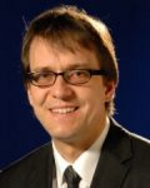
Stefan Pickl
Chair for Operations Research Management Safety & Security AllianceCOMTESSA Computer Science Faculty, Core Competence Center C3 for Operations Research, Universität der Bundeswehr, Munich, Germany
Professor Stefan Pickl studied mathematics, electrical engineering, and philosophy at TU Darmstadt and EPFL Lausanne 1987-93. Dipl.-Ing. ’93, Doctorate 1998 with award. Assistant Professor at Cologne University (Dr. habil. 2005; venia legendi "Mathematics"). Visiting Professor at University of New Mexico (U.S.A.), University Graz (Austria), Universiti Brunei, University of California at Berkeley, Naval Postgraduate School NPS Monterey (U.S.A.). Visiting scientist at SANDIA, Los Alamos National Lab, Santa Fe Institute for Complex Systems and MIT. Associated with Centre for the Advanced Study of Algorithms CASA (U.S.A.), Center for Network Innovation and Experimentation CENETIX. Foundation and Director of COMTESSA (Core Competence Center C3 for Operations Research, Management Safety & Security Alliance), member of MUNICH AEROSPACE, HOLM (House of Logistics and Mobility) and research branch “Humanitarian Logistics”/ “Integrative Risk Assessment Future ICT”.

Andreas Rechkemmer
American Humane Endowed Chair, University of Denver, and Chief Science and Policy Advisor, GRF Davos, Denver, USA
Andreas Rechkemmer is chief science and policy advisor of the Global Risk Forum, Davos, Switzerland and has recently been appointed American Humane Endowed Chair at the University of Denver. Rechkemmer is a scholar and practitioner of international relations and political science. He has a background in United Nations diplomacy and science-to-practice management, particularly in the areas of global environmental change and climate change, sustainability, human development, and the human and societal dimensions of risk and security. His scholarship also focuses on One Health, a multidisciplinary effort to attain optimal health for people, animals and the environment. He is a professor of human dimensions of natural resources (affiliate faculty) at Colorado State University, a guest professor at Beijing Normal University in China and an adjunct professor at the University of Cologne in Germany.

Chen Reis
Director, Humanitarian Assistance Program , Joseph Korbel School of International Studies, University of Denver, Denver, USA
Chen Reis, JD MPH, is a Clinical Associate Professor and Director of the Humanitarian Assistance Program at the Josef Korbel School of International Studies at the University of Denver. She was previously with the World Health Organization focusing on humanitarian policy issues and on sexual violence prevention and response in humanitarian settings. Prof. Reis has published extensively on sexual violence in settings affected by crises, and on ethical and safety issues related to collection and use of data on sexual violence in humanitarian settings. Her current research focuses on humanitarian governance and accountability.

Dale S. Rothman
Joseph Korbel School of International Studies, University of Denver, Denver, USA
Dale S. Rothman is an Associate Professor in the Josef Korbel School of International Studies, at the University of Denver and Senior Scientist with the Frederick S. Pardee Center for International Futures. Building upon an interdisciplinary educational background, he has been pursuing research and teaching in the areas of integrated assessment and ecological economics for two decades. He is currently involved in projects related to enhancing the quantitative representation of socioeconomic scenarios for climate research; the future of global fisheries; the expected benefits of environmental health interventions related to access to clean water and sanitation and modern fuels; and the potential implications of extreme extensions of life expectancy. His previous work has looked at climate change impacts, the environmental Kuznets’ curve hypothesis, sustainability indicators, health and the environment, and the future of infrastructure. He has held positions in the USA, Canada, the Netherlands, and the United Kingdom.
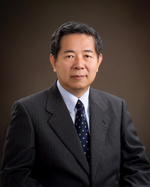
Kyoji Sassa
Executive Director of the International Consortium on Landslides, Kyoto, Japan
The Founding President of the International Consortium on Landslides from 2002-2008, Dr. Kyoji Sassa has worked as the Executive Director from 2009 to the present. He founded the bimonthly full color Journal “Landslides: Journal of international Consortium on Landslides”, and holds the role of Editor-in-Chief since its foundation in 2004.
Dr. Kyoji Sassa served as a chair of the organizing committee of the triennial World Landslide Forum (WLF 1, 2 and 3) since 2008, and the ICL Coordinator of the UNESCO-Kyoto University-ICL UNITWIN Cooperation Programme “Landslide and water-related disaster risk management for society and the environment” since 2003.
From 1981 to 2007 Dr. Kyoji Sassa was Associate Professor, Full Professor and Director of the Research Centre on Landslides in the Disaster Prevention Research Institute at Kyoto University, where he had previously obtained his Diploma, Master and Doctor's degrees in the Department of Forestry. He has shared his expertise on landslides by co-authoring various publications and books in this field.

Peijun Shi
Vice-President, Beijing Normal University, Beijing, China
Peijun Shi is the executive vice-president of Beijing Normal University. He received his Ph.D in palaeogeography at Beijing Normal University and gained postdoctoral experience at the College of Natural Resources at the University of California in Berkeley, USA. He is a member of the Expert Committee under the National Disaster Reduction Committee, which belongs to the Ministry of Civil Affairs of China. He is also a member of OECD’s High Level Advisory Board on Financial Management of Large-Scale Catastrophes. His research focuses on natural disaster theories and risk management. Shi has been charged with many relative national or ministerial programs and has numerous publications. He established the system of “regional natural disaster system” which consists of environment, hazard and society. Furthermore, he put forward the technological system of regional agricultural natural disaster assessment. Peijun Shi is currently co-chairing the IRG-Project.

Heinz Vollenweider
Board Delegate and CEO Europa Reinsurance Facility Ltd, Zug, Switzerland
Dr. Heinz Christian Vollenweider has 25 years experience with one of the world’s leading reinsurance companies, Swiss Re, where he gained first-hand experience in all reinsurance aspects including marketing, accounting and technical underwriting in most reinsurance business lines due to the various internal positions he held.
During his career, the founders of PartnerRe, an offspring of his employer, mandated him to develop the technical business plan for this reinsurance company established in 1993 and specialized in providing capacity for the reinsurance of weather related natural catastrophes and geophysical risks. While working for PartnerRe, Mr. Vollenweider was also actively involved in the process of converting the company from a world - renowned specialty reinsurer into a global reinsurance group through the acquisition of the French reinsurer SAFR and the reinsurance operations of Winterthur Insurance.
Furthermore, when the Turkish Catastrophe Insurance Pool (TCIP) was created with the support of the World Bank, Mr. Vollenweider was deeply involved in the project and managed to secure the position of leading reinsurer for his employer, a position that was maintained until he left the company.
Mr. Vollenweider ended his active reinsurance career as Chief Underwriting Officer for PartnerRe. After his departure from PartnerRe, Mr. Vollenweider established a consulting firm. In this new capacity, he has enjoyed working for his former employer, Swiss Re, and for the World Bank.
Mr Vollenweider holds a Ph.D. in Economics from the University of Zurich, Switzerland and has completed his studies with Magna Cum Laude.
He is fluent in German (mother tongue), English, French and has basic knowledge of Italian.

Dennis Wenger
Program Director for Program Element 1638, Infrastructure Systems Management and Extreme Events, at the National Science Foundation (NSF), Virginia, USA
Dennis Wenger is the Program Director for program element 1638, Infrastructure Systems Management and Extreme Events, at the National Science Foundation (NSF). He is also the Acting Program Director for the Civil Infrastructure Systems program. He had previously been at NSF from 2001-2005. Dr. Wenger was a Professor from Texas A&M University from 1989-2007. At Texas A&M, Dr. Wenger was a Professor of Urban and Regional Science and an Adjunct Professor of Sociology. He was also the Founding Director and Senior Scholar of the Hazard Reduction & Recovery Center. Prior to his arrival at Texas A&M in 1989, Dr. Wenger was on the faculty of the University of Delaware where he served as Co-Director of the Disaster Research Center from 1984-1989 Dr. Wenger has been engaged in research on hazards and disasters for over 40 years. His research has focused upon the social and multidisciplinary aspects of natural, technological, and human-induced disasters. Specifically, he has studied such topics as local emergency management capabilities and response, police and fire planning and response to disasters, search and rescue and the delivery of emergency medical services, mass media coverage of disasters, warning systems and public response, factors related to local community recovery success, and disaster beliefs and emergency planning. He undertook the only empirical study of the evacuation of the World Trade Center towers after the first terrorist attack in 1993 and served as the principal investigator for the first project to Enable the Future Generation of Hazard Researchers. He is the author of numerous books, research monographs, articles and papers. Dr. Wenger currently serves as one of the nine members of the United Nations Scientific and Technical Committee to the International Strategy for Disaster Reduction. At NSF Dr. Wenger serves as the foundation s representative to the Roundtable on Disasters of the National Academy of Science. He also represents NSF on the Subcommittee on Disasters (SDR) which is associated with the Office of Science and Technology Policy. Dr. Wenger serves as the Co-Chair for Science of the SDR.

Richard Wilcox
Director General, African Risk Capacity, Johannesbourg, South Africa
Dr. Richard Wilcox was appointed as interim Director General of the ARC Agency by the ARC Conference of the Parties in February 2013. Having lead the establishment and capitalization of the first African risk pool (ARC Insurance Company Ltd) in 2014, Dr Wilcox continues to direct the Agency, with a view to future portfolio growth. An expert in natural and man-made disasters, Dr. Wilcox has had served as the Political Director for the United Nations in Iraq in 2007 and as Representative of the Secretary- General to Serbia in 2008. Richard joined the UN World Food Programme (WFP) in 2001 as Chief of Interagency Coordination. Later, as Director of the Business Planning Division, he created and managed a $250 million project to finance emergency aid in advance of donor contributions, and pioneered drought insurance in Ethiopia as an international risk transfer instrument to protect poor populations vulnerable to natural disasters.
Prior to joining WFP, Richard was director of United Nations Affairs of the United States National Security Council under President Clinton. He has been working in the emergency assistance field since 1995 in a number of positions in the United Nations, including political advisor to the international police commissioner in Bosnia, senior UN liaison in Iraq in 2003 and political advisor to the Secretary General's Special Representative for Iraq in 2004. A German and US citizen, Richard holds a doctorate from Massachusetts Institute of Technology (MIT) and has studied political philosophy at Harvard, as well as Finance at INSEAD. He also teaches graduate courses in the Development and Security Program at the John Hopkins University School of Advanced International Studies (SAIS Europe) in Bologna, Italy.

James Herbert Williams
Dean, DU Graduate School of Social Work, University of Denver, Denver, USA
Professor James Herbert Williams, PhD., is Dean and Milton Morris Endowed Chair at the Graduate School of Social Work at the University of Denver. He holds his MSW from Smith College, MPA from the University of Colorado and PhD in Social Welfare from the University of Washington-Seattle. Dr. Williams’ research and training has been funded by grants from several federal and state agencies and private foundations. Dr. Williams’ publications and community engagement focus on health promotion and disease prevention, health disparities, economic sustainability, human security, conflict resolution, delinquency and violence, mental health services for African American children in urban schools, disproportionate minority confinement of African American youth in the criminal justice system, community strategies for positive youth development, and social issues of the African American community. His scholarship has been published in several prominent health and social science journals. Dr. Williams has 30 plus years of experience as a scholar/educator and social work practitioner. He has served on two commissions for the Council on Social Work Education and as a member of the Society for Social Work and Research (SSWR) Board of Directors. He is the current President of the Board of Directors for the National Association of Deans and Directors of Schools of Social Work.

Yang Zhang
Program Coordinator of the Master of Urban and Regional Planning program, founding member Disaster Resilience Graduate Educational Program , Virginia Tech, Arlington, USA
Dr. Yang Zhang is the Program Coordinator of the Master of Urban and Regional Planning program and the founding member of its new Disaster Resilience Graduate Educational Program at Virginia Tech. His research looks at post-disaster recovery and community resilience. His recent research has been funded by the National Science Foundation, the Virginia Sea Grant, the Lincoln Institute of Land Policy, the Institute of Society, Culture, and Environment, and the Global Issue Initiative. In 2010, Dr. Zhang was selected as a National Science Foundation Research Fellow on natural hazards and disasters.


